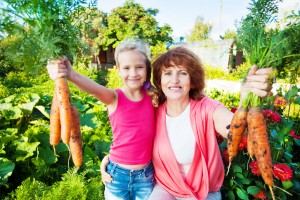What should an enlightened society eat?

If we all knew exactly what foods were good for us, our society, and our planet, what would we eat?
Once David Attenborough told us about the overuse of plastic we all cut down.
Will finding out about food make us change?
There is little doubt that consumers need to be more enlightened about food. 20% of the NHS budget is spent on food related diseases and some children think potatoes grow on trees and milk comes from supermarkets, not cows.
Even in France butchers are asking for protection against militant vegans lacking knowledge about sustainable agriculture.
So what should we know and how would it effect what we buy?
First a few horrors:
– The average supermarket chicken contains nearly a pint of ‘bad’ fat, traces of antibiotics, has hock burns from standing in its own excrement and bones so spongy they can be minced up to make hot dogs.

What’s in your trolley?
– Only 20% of apples consumed in the UK are produced here
– One Dairy Lea Lunchable (harvest ham) contains 37% more salt than the recommended maximum daily intake for a 6 year old child
– To fly a Kiwi fruit to the UK takes the same weight in fuel as the fruit
– Up to 30% of road freight is food related
In an enlightened society, if we all knew that the most sustainable way of food production was mixed organic farming, with no artificial chemicals or fertilisers, would we want to buy our food from these farms and pay a little more for it?
Would we cut down on meat consumption when we realised that it takes 8kg of grain to produce 1kg of beef, or 2kg of grain to produce 1kg of chicken. And if current trends continue by 2050 there will be enough grain fed to animals to produce meat, eggs and dairy products, that could instead feed 3 billion people?

GM food modification.
Would we be as happy to shop at supermarkets if we understood that for every £1 spent on food in a supermarket on average farmers only get 9p?
This small share of the retail price means that thousands of farmers around the UK are selling direct to local consumers at prices cheaper than the supermarket. This trade is encouraging more farmers to switch from intensive farming to growing food for local people, and in the process building more sustainable local food supply chains.

We grew these tasty raw, healthy, carrots!
Or should we wait for science to produce ‘foods’ that are synthesised and do not require the use of land, seeds, sun and water? Like burgers from stem cells.
Or should we allow greater genetic modification to increase intensive food production and reduce the use of chemicals and fertilisers? Give more power to Monsanto?
As we live in a free country we should have a mixture of the above but be enlightened to make the right choices.
To me this means education and reconnection.
Education: Food, and growing food, all through the school curriculum, and every school teaming up with a local farmer, or farm shop, to build a veg patch and sell what the school has grown, and not eaten in the school kitchen.

local food map
And Reconnection. Our modern food industry dominated by the supermarkets has disconnected us from where our food comes from, so, we must give up supermarkets! And use the BigBarn Local Food Map (that everyone can share and add to), to switch to local farmers and shops where we all encourage greater food production, influence long term, sustainable, environmental, farming and see our money boost the local economy.
It will take time, but be worth it.